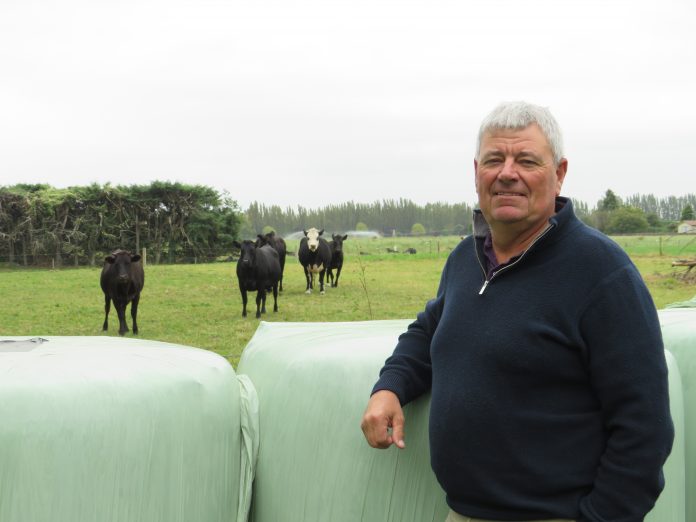
Duncan Barr is giving back to the farming community taking on two new roles with Mid Canterbury Rural Support Trust.
He is a wellness co-ordinator – a shared position with rural stalwart Frances Beeston – and also adverse events co-ordinator, in times of need such as flood, snow, or earthquake.
Barr said he was motivated to take on the roles as a way to give back to the farming community and an industry which had been good to him over the years.
“It’s a community and industry that’s been good to me all my life, so I’m putting back to my community and industry,” he said.
As a wellness co-ordinator, with Beeston, “it fits my ethos and what makes me tick,” he said.
“I think I’ve got some skills which I could put into helping make (recovery from) adverse events run a wee bit more smoother – or put the rural flavour into it.”
He was keen to close the gap between plans and action in the field.
“We’ve got a void between bureaucratic process and the rural community,” he said.
“Some real good stuff happens behind the scenes but to land it on the scene rurally, we’ve got some voids there of understanding the unique nature of the rural society.”
Barr was brought up on a Taranaki sheep/dairy farm conversion, and moved to Canterbury about 25 years ago.
He, and wife Lynne, faced an unpleasant bureaucratic process dealing with Mycoplasma bovis after it was identified on their former run-off block at Lowcliffe in 2018.
In the following months they were inundated following a bureaucratic paper trail process which, at times, seemed nonsensical.
“I was a translator. I translated from bureaucratese into rural speak, rural talk. And it’s quite a different language,” he said.
He understood both sides and has already been researching, keen to use the knowledge of those who had experienced events in the past of what did and did not work.
“We’ve got to look at the people that have been through it, and use them as a resource,” he said.
“They’ve got some real, real good knowledge of what happens.”
“Instead of being told what to do, listen to those people on the ground to make sure we get the right response. Everyone wants the right outcome,” he said.
“That’s what I think I bring to it, understanding the mix between the two.”
Already in the role for a few weeks, Barr was excited to get involved in different aspects.
“Different things crop up and challenging issues but some quite cool stuff.”
He said two challenges faced in the district were among arable farmers with tighter margins on farm and immigration workers.
Immigrant labour over the years had seen good support structures in place for some but more were needed for others.
There were also cultural differences to be aware of, he said.
“We are getting different nationalities and we are getting a bit of a melting pot. We need to make sure we support our migrant staff possibly better than we do.”
“My wife is English, I know the challenges of moving overseas,” Barr said.
“People moving over here and their elderly parents are still in their home country, unless you experience that you don’t really know the implications of that. It provides challenges and stresses.”
Need support:
Mid Canterbury Rural Support Trust – rural people helping rural people Ph 0800 787 254.



